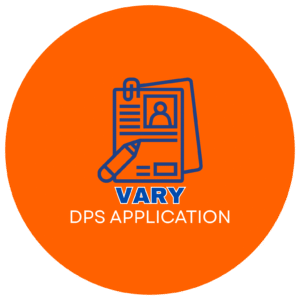This qualification is aimed at anyone who wishes to work in licensed premises where alcohol is sold. You will look at licensing authorities; at the responsibilities of the personal license holder; police powers; rights of entry; specific prohibitions; strengths of alcoholic drinks; responsible retail of alcohol; and the protection of children from harm.
On completion of this course, candidates will hold a licensing qualification with which they can apply for the Personal Licence.
Anyone who authorises the sale of alcohol to the public (as per the legal requirement in England and Wales) is required to have a suitable qualification.
What will I need to sit my exam?
- Any device to sit the course
- A PC/Desktop Computer for the exam
- Webcamera and Microphone for exam
- Photo ID for the exam
- A quiet place to sit without disturbance
What does a Personal Licence Do?
It’s the licence you will need if you with to authorise the sale of alcohol in England and Wales. Scotland has its own Personal Licence. It lasts indefinitely once you have it.
Do I have to Carry my Personal Licence?
You should have your Personal Licence with you whenever you are authorising sales of alcohol. Police officers and authorised council officers can ask to inspect your licence, and it is an offence not to be able to produce your licence when asked to do so.
Personal Licences consist of two parts – a photocard and a paper counterpart. We recommend that you should always keep the photocard with you, and that the counterpart should be kept in a safe place at the premises where you work, where it can be accessed if required.
I’m moving house / changing my name. Do I need to let the council know?
Whenever your details change, you must let the local council to which your original licence was from know, so that they can update your licence. You have provided a change of details form that you can use for this.
Please also note that even if you move out of your local area, your Personal Licence stays with the council – you do not need to re-apply to the local council in your new area.
I have been charged with a criminal offence after being granted a Personal Licence. Do I need to let the council know?
Where charged with a relevant offence, Personal Licence holders have a legal obligation to tell the court about their licence and show it to the court if possible, before the end of their first appearance in a magistrate’s court.
If you are subsequently convicted of the charge, and if the court was told about your licence, they will usually notify the council of your conviction. They will then ask you to return your licence to endorse the details of the conviction upon it (similar to a driving licence). If you failed to tell the court about your licence, or if you were convicted of a similar offense abroad, you must notify them of your conviction.
These provisions only apply to specific offenses known as ‘relevant offenses’.
I have previously been convicted of an offence. Can I still apply for a Personal Licence?
Only certain convictions are taken into account when considering Personal Licence applications, for specific offences known as ‘relevant offences’. Please see a list of relevant offences for further details.
Prior convictions ARE disregarded if they are considered to be spent, in accordance with the Rehabilitation of Offenders Act 1974.
If you have an unspent conviction for a relevant offence, you may still apply for a Personal Licence. In these circumstances, the council are required to consult with the police before they determine an application, and if an objection is received, your application would be referred to a Licensing Sub-Committee hearing to be considered further. You would be invited to attend the hearing and address the Committee as part of this process.
Can I make my Personal Licence application through a solicitor or agent?
A solicitor or agent such as us here at the Academy can submit an application for you. However, you must sign the application form and the criminal convictions declaration form yourself – an agent cannot do this on your behalf. It is also your responsibility to ensure that the details given on the form are all correct.
When making a Personal Licence application, who can endorse the photographs to say that they are a true likeness of me?
One of the two photographs that you submit should be marked on the back with a sentence along the lines of ‘This photograph is a true likeness of …’ followed by your name. This endorsement can be made by:
- a solicitor
- a notary
- a person of standing within the community (for example, a religious leader, a doctor, a police officer, a teacher)
- an individual with a professional qualification (for example, an accountant, an architect, an engineer, a registered financial advisor, a company/charity director)
Please ensure that the endorser signs the photo, prints their name and gives details of their job title or qualification.
What happens if I fail?
You can resit the exam should you fail it.






Reviews
There are no reviews yet.